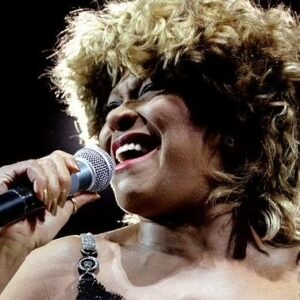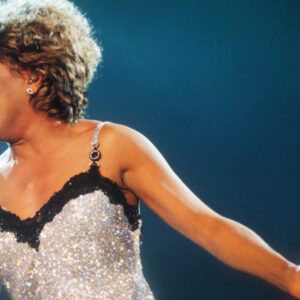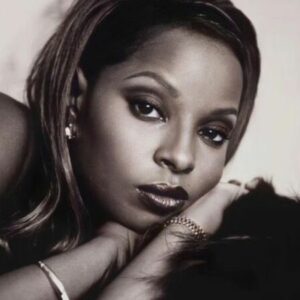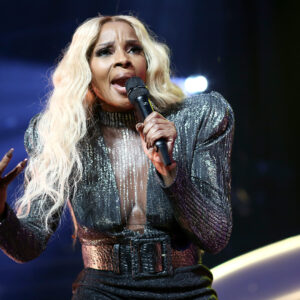Introduction
Mary J. Blige is often heralded as the “Queen of Hip-Hop Soul,” a title that resonates not just in musical circles but across the cultural landscape. Her groundbreaking fusion of R&B and hip-hop has not only set trends but has also given voice to the struggles and triumphs of a generation. Blige’s work speaks to universal themes of love, loss, and resilience, all while echoing the lived experiences of Black women. Among her many contributions to music, her performances at the MTV Video Music Awards (VMAs) stand out as monumental moments that not only showcase her artistry but also reflect broader cultural shifts and conversations.
The VMAs, a platform historically designed to celebrate visual creativity in music, have played an integral role in elevating artists, propelling them into the mainstream and spotlighting their unique narratives. For Blige, these performances have been pivotal in her artistic journey, serving as both a canvas for her evolving musical style and a megaphone for her messages of empowerment and authenticity. This article delves into the historical significance of Blige’s VMA performances, her role in promoting empowerment and representation, her musical evolution, and the cultural conversations sparked by her presence at these iconic award shows.
Historical Significance
Mary J. Blige’s relationship with the MTV Video Music Awards is storied and rich with milestones. She first graced the VMA stage in 1995, performing her hit “You Remind Me.” At a time when the music industry was still grappling with the complexities of race and genre, Blige’s performance was a vibrant display of confidence, showcasing her unique blend of soulful melodies and hip-hop bravado. This moment not only marked her emergence as a force in music but also served as a pivotal point in the representation of Black artists within a largely white-dominated media landscape.
Throughout the years, Blige’s VMAs performances have mirrored significant cultural shifts. In 2001, her performance of “Family Affair” was not just a showcase of her vocal prowess but a reflection of the cultural zeitgeist, with its themes of unity and celebration. At a time when the nation was grappling with issues of division and identity, Blige’s presence and message resonated deeply. Her dynamic performances have continuously adapted to the evolving musical landscape, symbolizing the resilience of Black artistry amidst changing societal contexts.
Blige’s historical significance extends beyond her performances; she has used the VMA platform to address pressing issues facing the Black community. Her willingness to tackle themes of love, pain, and strength in her music invites audiences to engage with broader societal narratives. Each performance is a chapter in a larger story about the struggles and victories of Black women, illuminating their experiences and challenges in a world often rife with inequity.
Empowerment and Representation
At the heart of Mary J. Blige’s music lies a powerful message of empowerment, particularly for Black women. Her lyrics often encapsulate themes of survival, self-love, and resilience, resonating with audiences who see their own struggles reflected in her artistry. Blige’s performances at the VMAs serve as a testament to this empowerment, as she consistently uses her platform to advocate for self-acceptance and authenticity.
One of the most striking aspects of Blige’s performances is her authenticity. From her raw vocal delivery to her emotional engagement with the audience, she embodies the complexities of Black womanhood. This authenticity creates a connection that transcends the music itself, inviting diverse audiences to partake in her narrative. Whether she is delivering a heart-wrenching ballad or an upbeat anthem, Blige’s presence exudes confidence and strength, making her a relatable figure for many.
Moreover, Blige’s influence goes beyond her own music; she has paved the way for future generations of artists. Her unapologetic embrace of her identity has encouraged others to express themselves freely, fostering a culture of representation that has become increasingly vital in the music industry. In an era where diversity is more crucial than ever, Blige’s commitment to authenticity sets a powerful example for both established and emerging artists.
Musical Evolution
Mary J. Blige’s musical journey is a testament to her evolution as an artist, and her performances at the VMAs have chronicled this growth. Starting with her hip-hop soul roots, Blige has continually redefined her sound, embracing elements of R&B, hip-hop, and even gospel. Each performance reflects her adaptability and willingness to explore new musical territories while maintaining the emotional depth that defines her work.
In her earlier VMAs performances, such as her iconic rendition of “Real Love” in 1996, Blige was characterized by a raw energy and a fusion of hip-hop and soul that was groundbreaking. As she evolved, so too did her performances. The mid-2000s saw her experimenting with more polished productions, showcased in her performance of “No More Drama” in 2002. This shift not only mirrored her personal growth but also reflected broader trends in the music industry, where artists were beginning to embrace a more commercial sound while still advocating for authenticity.
Blige’s performances have also had a lasting impact on genres like R&B and hip-hop. She has influenced countless artists, encouraging them to blend genres and express their stories authentically. Her ability to navigate different musical styles while maintaining her unique voice has set a precedent for future artists, highlighting the importance of versatility in an ever-evolving industry.
Cultural Conversations
Mary J. Blige’s presence at the VMAs has sparked critical conversations about race, gender, and representation in the music industry. In an era where discussions around diversity and inclusion are increasingly prominent, Blige’s performances serve as a catalyst for dialogue. Her ability to address issues facing the Black community and women in particular has made her a vital figure in these conversations.
For instance, her performance of “The Living Proof” at the 2012 VMAs was a poignant reminder of the struggles faced by Black women. As she sang about resilience and survival, the performance transcended mere entertainment; it became a powerful statement about the strength of Black women in a society that often marginalizes their experiences. Blige’s willingness to confront these realities head-on invites audiences to reflect on the systemic issues that persist within the music industry and beyond.
Furthermore, Blige’s impact extends to the evolution of award shows themselves. Her performances have pushed the envelope, challenging the norms of how artists are showcased and encouraging the industry to embrace a more inclusive representation of diverse voices. As award shows continue to grapple with questions of diversity, Blige’s legacy serves as a guiding light, reminding us of the importance of representation and authenticity in entertainment.
Legacy and Influence
Mary J. Blige’s influence on music and culture is undeniable. As she continues to perform and create, her relevance in today’s music scene is a testament to her enduring legacy. Blige has inspired not only her contemporaries but also a new generation of artists who see her as a trailblazer in the industry. From artists like H.E.R. and SZA to veterans like Alicia Keys, Blige’s impact reverberates throughout the music community.
Moreover, her commitment to social issues has only strengthened her legacy. Blige has consistently used her platform to advocate for mental health awareness, domestic violence prevention, and the empowerment of women. This dedication to social justice not only enriches her music but also cements her status as a cultural icon who understands the weight of her influence.
As we look to the future, it is clear that Mary J. Blige’s contributions to music and culture will continue to resonate. Her ability to connect with audiences on a deeply personal level ensures that her work remains relevant in an ever-changing landscape. As she embarks on new projects and continues to evolve as an artist, her legacy is one that will undoubtedly inspire generations to come.
Conclusion
In reflecting on Mary J. Blige’s contributions to music and culture through her performances at the MTV Video Music Awards, it is evident that her legacy is both rich and multifaceted. Blige has not only showcased her immense talent but has also served as a powerful voice for empowerment and representation. Her performances encapsulate the struggles and triumphs of Black women, highlighting the importance of authenticity and resilience in a world that often seeks to silence those voices.
As we celebrate Blige’s contributions, it is crucial for audiences to recognize the ongoing importance of representation in entertainment. The conversations sparked by her performances remind us that art is not just a form of expression but also a means of advocating for change. By reflecting on the impact of artists like Mary J. Blige, we can appreciate the significance of diversity in the music industry and continue to champion the voices that enrich our cultural landscape.





